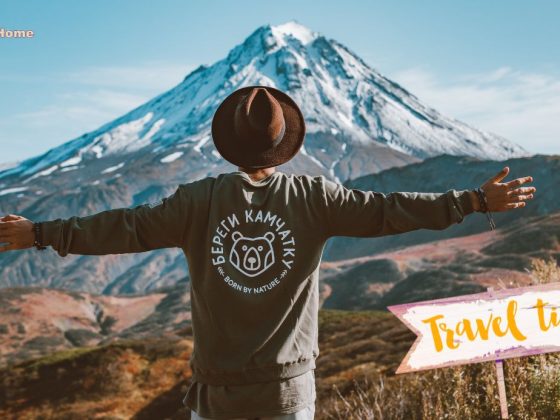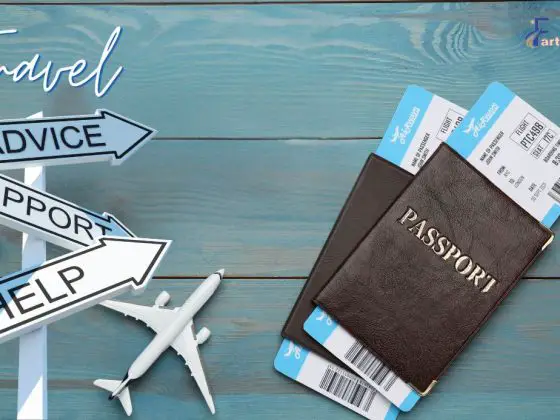Traveling is a remarkable adventure that broadens your horizons and leaves you with unforgettable memories. However, it can also be a bit daunting if you’re not well-prepared. To make your journeys smoother and more enjoyable, we’ve compiled a comprehensive guide for masterful travel tips and clever hacks for everyone. Whether you’re a seasoned globetrotter or a newbie explorer, these insights will help you make the most of your next adventure.
Masterful travel tips and clever hacks for You
1. Pre-Trip Planning

1.1 Research Your Destination
- Dive deep into the culture and attractions of your destination.
Before embarking on any journey, a crucial first step is to thoroughly research your chosen destination. This means more than just a casual glance at the popular tourist spots. Immerse yourself in the culture, history, and unique attractions of the place you’re visiting. Knowing the local customs and traditions will not only enrich your travel experience but also help you navigate the destination with ease.
1.2 Create an Itinerary
- Plan a rough daily schedule to make the most of your time.
Creating a flexible itinerary is a wise move. It doesn’t mean every minute of your day needs to be scheduled, but having a rough plan can help you make the most of your time. Identify the must-see places you’d regret missing and allocate time for them. Leave room for spontaneity, too, as some of the best travel experiences often come from unexpected discoveries.
1.3 Packing Strategically
- Make a packing list to avoid overpacking.
The art of packing is something many travelers struggle with. A great starting point is to create a packing list. List all the essentials, including clothing, toiletries, and any specialized gear you might need. But remember, it’s easy to overpack, so scrutinize your list and consider versatile clothing items that can be mixed and matched.
1.4 Travel Insurance
- Explore different insurance options for your trip.
Travel insurance is often an overlooked aspect of travel planning. Yet, it can be a lifesaver in unexpected situations. Research and compare various insurance options to ensure you have coverage for medical emergencies, trip cancellations, and lost luggage. It’s an investment in your peace of mind.
2. Money Matters

2.1 Currency Exchange
- Research currency exchange rates.
When traveling internationally, understanding the currency exchange rates is crucial. Exchange rates can vary widely, and getting a good deal can save you money. Use reliable sources, such as currency conversion apps or websites, to keep track of exchange rates.
2.2 Cash and Cards
- Carry a mix of cash and cards.
Diversify your payment methods when you travel. It’s wise to carry a mix of cash in the local currency and international credit or debit cards. In some places, cash is king, while in others, cards are widely accepted. Having both options ensures you won’t find yourself stuck without a way to pay for your expenses.
2.3 Budgeting
- Set a daily spending limit.
Creating a travel budget is an essential component of responsible travel planning. Set a daily spending limit to help you keep track of your expenses and ensure you don’t overspend. Remember to factor in costs like accommodation, meals, transportation, and activities.
3. Booking and Accommodation
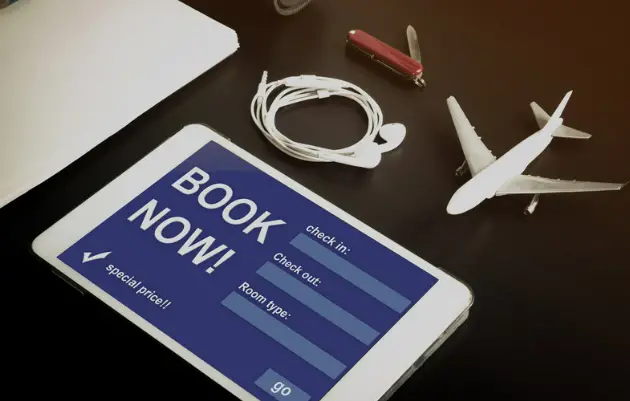
3.1 Flight Bookings
- Use fare-comparison websites.
Finding the best flight deals is often a matter of careful research. Fare-comparison websites and apps can help you identify the most affordable options for your travel dates. Keep an eye out for special promotions and discounts.
3.2. Accommodation Options
- Explore alternatives like Airbnb or hostels.
Accommodation options are not limited to hotels. Consider alternatives like Airbnb, hostels, or guesthouses. These options can be more budget-friendly and offer unique experiences. Reading reviews and considering the location when booking is essential to ensuring a comfortable stay.
3.3 Loyalty Programs
- Sign up for airline and hotel loyalty programs.
If you’re a frequent traveler, signing up for airline and hotel loyalty programs can be a game-changer. Accumulating points and miles can lead to significant discounts, free upgrades, and other perks during your travels.
4. Travel Essentials
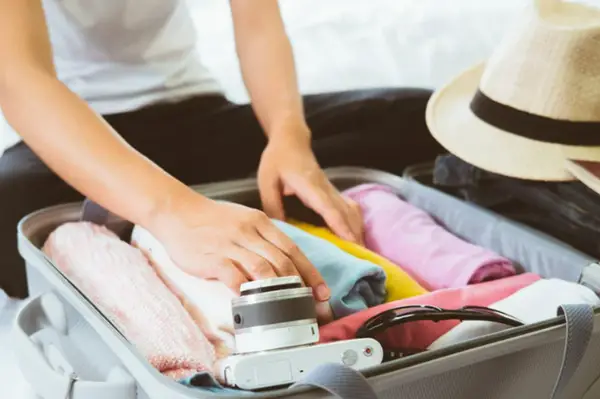
4.1 Travel Documents
- Make copies of passports, visas, and tickets.
Your travel documents are your lifeline when abroad. To be on the safe side, make photocopies or digital scans of your passport, visa, and flight tickets. Keep these separate from the originals in case of loss or theft.
4.2 Packing Essentials
- Don’t forget adapters, chargers, and power banks.
In today’s digital age, staying connected is a priority. Make sure to pack the necessary adapters, chargers, and power banks for your devices. There’s nothing worse than being unable to capture memories or navigate due to a dead battery.
4.3 Language Apps
- Download language apps for on-the-go translation.
Language barriers can be a challenge, but technology has your back. Download language translation apps to help you communicate with locals and navigate in a foreign language. Additionally, learning a few basic phrases in the local language can go a long way in fostering connections.
5. Navigating the Journey
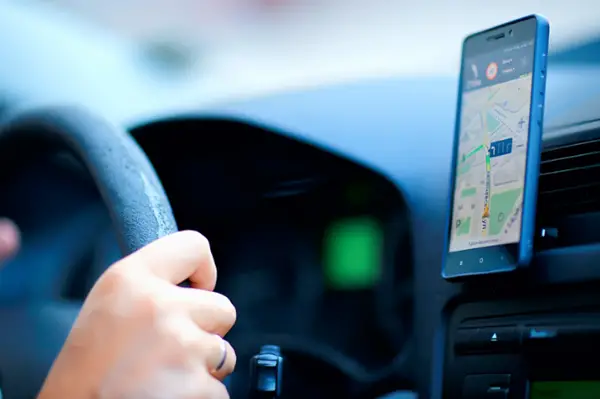
5.1 Airport Hacks
- Arrive early to avoid stress.
Stress at the airport is the last thing you want at the start of your journey. Arrive early to allow ample time for security checks, finding your gate, and any unexpected delays. This can help you start your trip on a relaxed note.
5.2 Public Transportation
- Use local public transportation for cost-effective travel.
Using local public transportation can save you money and offer a more immersive travel experience. Download transit apps for maps and schedules to navigate like a local.
5.3 GPS and Maps
- Download offline maps for areas with limited connectivity.
Staying connected isn’t always possible, especially in remote areas. Downloading offline maps in advance can ensure you never get lost. GPS tracking apps can also be invaluable for finding your way around.
6. Staying Safe and Healthy
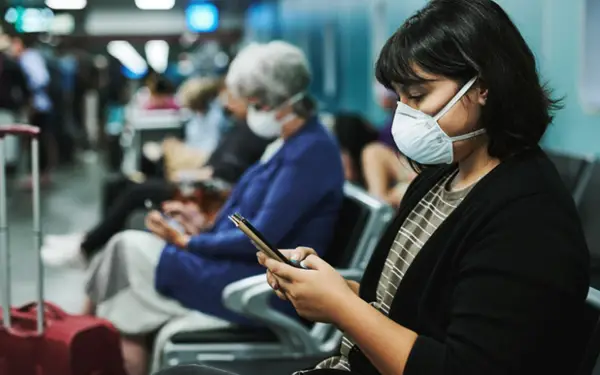
6.1 Health Precautions
- Get the necessary vaccinations.
Prioritize your health by researching and obtaining any necessary vaccinations or medications for your destination. Check with your healthcare provider or a travel clinic well before your departure date.
6.2 Safety Tips
- Stay aware of your surroundings.
Vigilance is key to staying safe while traveling. Keep an eye on your belongings and your surroundings. Anti-theft bags or pouches can provide an extra layer of security for your valuables.
6.3 Local Cuisine
- Sample local dishes, but be cautious of street food.
Exploring local cuisine is a delightful part of travel. Be adventurous and try authentic dishes, but exercise caution, especially when it comes to street food. Look for busy vendors with good hygiene practices, and opt for cooked food over raw items.
7. Cultural Sensitivity

7.1 Respect Local Customs
- Learn about local customs and traditions.
Respecting local customs is a sign of cultural sensitivity. Take the time to learn about the customs and traditions of your destination. Dress appropriately when visiting religious sites, and always ask for permission before taking photographs of people.
7.2 Communication
- Be respectful and courteous in your interactions.
Effective communication is key to positive interactions with locals. Treat people with respect and courtesy, and remember that you are a guest in their country. Small gestures of politeness can go a long way in building positive relationships.
8. Travel Photography

8.1 Camera Gear
- Choose a camera that suits your travel style.
Selecting the right camera is essential for capturing memorable moments. Choose a camera that fits your travel style, whether it’s a compact point-and-shoot for convenience or a DSLR for photography enthusiasts. Don’t forget to pack extra batteries and memory cards to avoid running out of storage or power.
8.2 Composition
- Experiment with angles and framing.
Elevate your photography skills by experimenting with different angles and framing. Rather than just taking standard tourist snapshots, look for unique perspectives that convey the essence of the destination.
8.3 Documenting Memories
- Keep a travel journal or blog.
To ensure your travel memories live on long after your trip, consider keeping a travel journal or blog. Share your experiences, thoughts, and photos with friends and family. It’s a fantastic way to relive your adventures and inspire others to explore the world.
9. Staying Connected
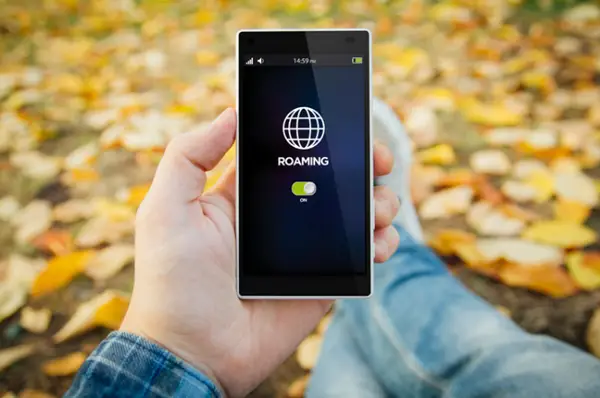
9.1 Mobile Plans
- Check international roaming rates.
Staying connected while abroad is essential, but it can also be expensive. Check with your mobile provider for international roaming rates and data plans. Alternatively, consider purchasing a local SIM card for better rates.
9.2 Wi-Fi Hotspots
- Find Wi-Fi in cafes, libraries, and public areas.
Wi-Fi hotspots can be a traveler’s best friend. Many cafes, libraries, and public areas offer free Wi-Fi access. Be cautious when using public networks, and consider using a virtual private network (VPN) for secure browsing.
10. Sustainability and Responsible Travel

10.1 Eco-Friendly Choices
- Reduce plastic waste with reusable bottles and bags.
Responsible travel includes being mindful of your environmental impact. Reduce plastic waste by carrying reusable water bottles and shopping bags. Refrain from using single-use plastics whenever possible.
10.2 Cultural Preservation
- Be mindful of cultural heritage and local ecosystems.
Travel responsibly by respecting cultural heritage and local ecosystems. Be aware of any regulations and guidelines for visiting natural sites and historical landmarks. Avoid behaviors that may harm the environment or local culture.
11. Dealing with Jet Lag
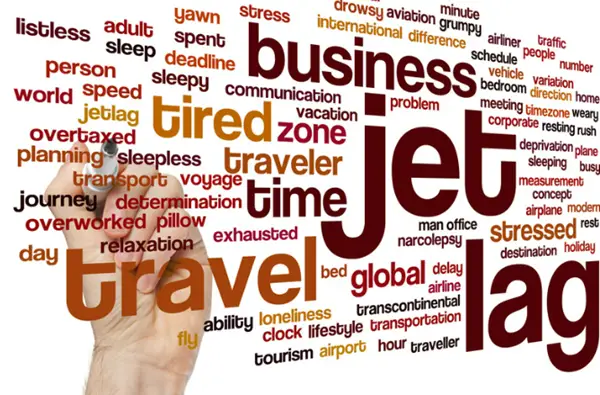
11.1 Adjust Your Schedule
- Gradually shift your sleep and meal times before departure.
Jet lag can be a traveler’s nemesis. To combat it, start adjusting your sleep and meal schedule a few days before your departure. This gradual shift can help your body adapt to the new time zone more smoothly.
11.2 Natural Remedies
- Consider herbal teas and melatonin supplements.
Natural remedies can aid in minimizing jet lag’s effects. Herbal teas like chamomile or valerian can promote relaxation, while melatonin supplements can help regulate your sleep patterns. Spend time outdoors in natural light upon arrival to help reset your internal clock.
12. Solo Travel Tips

12.1 Safety Precautions
- Share your itinerary with a trusted person.
Solo travel can be incredibly rewarding, but it also requires extra precautions. Share your travel itinerary with a trusted friend or family member. They’ll know your plans and can help in case of emergencies.
12.2 Socialize and Make Friends
- Join group tours or activities to meet fellow travelers.
Solo travelers need not be alone. Joining group tours or activities is a great way to meet like-minded travelers and create new friendships. Additionally, consider using social apps to connect with locals and other solo travelers for shared experiences.
13. Family Travel Hacks
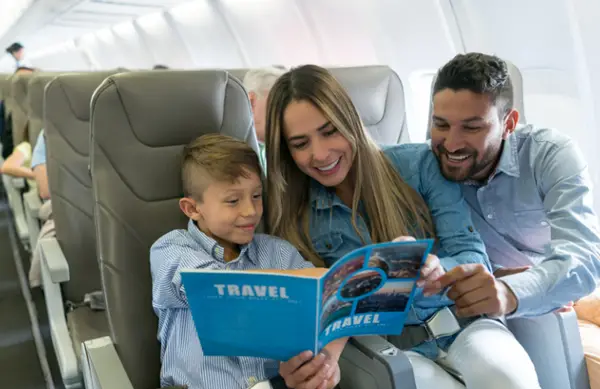
13.1 Kid-Friendly Activities
- Research family-friendly attractions.
Traveling with kids can be a joy, but it requires extra planning. Research and identify family-friendly attractions that will engage and entertain your children. Look for destinations with interactive museums, parks, and activities designed for young travelers.
13.2 Packing for Kids
- Pack snacks, comfort items, and childproofing essentials.
Packing for kids can be an adventure in itself. Remember to pack their favorite snacks, comfort items like toys or blankets, and any childproofing essentials to ensure their safety in unfamiliar environments.
14. Adventurous Travel
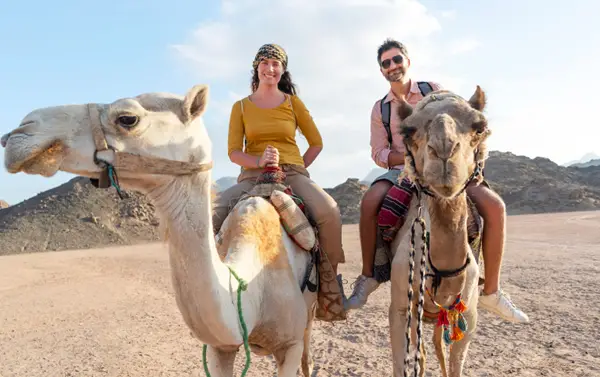
14.1 Extreme Sports Safety
- Choose reputable operators with high safety standards.
For those seeking adventurous thrills, safety should be a top priority. When engaging in extreme sports or activities, choose operators and guides with reputable safety standards. Don’t hesitate to ask about their safety procedures and equipment.
14.2 Off-the-Beaten-Path Exploration
- Research remote areas thoroughly.
Venturing into off-the-beaten-path destinations can be incredibly rewarding, but it also requires careful research. Thoroughly investigate remote areas, including local customs and safety considerations. Consider guided tours if you’re exploring unfamiliar terrain.
15. Long-Term Travel
15.1 Budgeting and Income
- Plan for a sustainable income source on the road.
Long-term travel often means finding a sustainable source of income while on the road. Before embarking on a long journey, consider how you’ll support yourself financially. Freelancing, remote work, or saving in advance can be options to explore.
15.2 Slow Travel
- Embrace the local lifestyle and culture.
Slow travel is a trend among long-term travelers who want to immerse themselves in local culture. Rather than rushing from one tourist spot to another, spend an extended period in one location, embracing the local lifestyle, and contributing to the community. Consider volunteering or working during your travels for a deeper experience.
16. Traveling with Pets
16.1 Pet-Friendly Destinations
- Research destinations that welcome pets.
If you’re a pet owner, you don’t need to leave your furry friend behind. Research pet-friendly destinations where your pet is welcome. Ensure you carry all necessary documentation for your pet, including vaccination records and microchip details.
16.2 Pet Comfort
- Pack pet essentials like food, water, and bedding.
Your pet’s comfort is a priority when traveling together. Pack essentials like their food, water, and bedding. Familiar items can help your pet feel more at ease in new environments. Additionally, be mindful of pet-friendly accommodations that can cater to your pet’s needs.
17. Clever Packing Tips
Packing efficiently can save you a lot of time, effort, and stress during your travels. Here are some clever packing tips to make the most of your luggage space and keep your belongings organized.
17.1 Roll Clothes, Don’t Fold
Instead of traditional folding, roll your clothes to save space and minimize wrinkles. This method is especially useful for soft and non-bulky items like t-shirts and casual wear. Rolling not only conserves space but also makes it easier to find specific items in your suitcase.
17.2 Multi-Purpose Items
When choosing what to pack, think about items that serve multiple purposes. A versatile scarf can double as a shawl or even a beach towel. Convertible clothing pieces like zip-off pants that become shorts are excellent for traveling light. By selecting items that can fulfill more than one role, you’ll have a more flexible and efficient wardrobe.
17.3 Compression Bags
Compression bags are a godsend for maximizing luggage space. You can use them to squeeze the air out of bulky clothing, like winter jackets, making them flat and compact. Additionally, consider adding sachets of lavender or cedar to keep your clothes smelling fresh during your journey.
18. Travel Etiquette
Being mindful of travel etiquette not only makes your trip more pleasant but also helps you leave a positive impression on the people you encounter during your journey.
18.1 Airplane Etiquette
Airplanes are confined spaces where personal space is at a premium. Be considerate of your fellow passengers by not reclining your seat suddenly. If you need to recline, do so gradually and look behind you to ensure it won’t disrupt the person seated behind you. Be mindful of noise and odors, and avoid any behavior that might disturb those around you.
18.2 Accommodation Etiquette
When staying in shared accommodations like hostels or Airbnb rentals, remember to keep noise levels down, especially during nighttime hours. Follow house rules and respect the privacy of other guests. Being a courteous and considerate traveler can lead to positive interactions and a more enjoyable experience for everyone.
19. Language Barriers
Dealing with language barriers can be a common challenge while traveling. Here are some tips to navigate language differences.
19.1 Translation Apps
Download offline translation apps to your mobile device. These apps can help you communicate basic needs and questions, even when there’s no internet connection. Additionally, consider using images or gestures to supplement your communication, as they can be universally understood.
19.2 Learn Local Phrases
Learning a few essential phrases in the local language goes a long way toward building rapport with the locals. Simple greetings, “please,” “thank you,” and “excuse me” can show your effort to connect with the culture and people of the destination you’re visiting.
20. Managing Time Zones
Managing time zones effectively is crucial, especially when you’re crossing multiple time zones during your journey.
20.1 Jet Lag Strategies
To combat jet lag, gradually adjust your sleep and meal times to align with the destination’s time zone before your departure. During the flight, stay hydrated, avoid heavy meals, and try to get some rest.
20.2 Scheduling Tools
Utilize world clock apps or features on your phone to keep track of different time zones, which can be incredibly handy when coordinating with people in various parts of the world. Plan your activities and schedules in line with the local time to minimize confusion and maximize your time efficiency.
21. Unexpected Scenarios
While no one wants to encounter unexpected situations during their travels, being prepared is essential.
21.1 Lost Luggage
To prevent the hassle of lost luggage, label your bags clearly with your contact information. Additionally, always pack essential items like medications, a change of clothes, and important documents in your carry-on bag to ensure you have the basics in case your checked luggage goes astray.
21.2 Emergencies
It’s wise to have an emergency contact list with important numbers, including your home country’s embassy or consulate in the destination you’re visiting. This can be invaluable in case you encounter any urgent situations or require assistance while abroad.
22. Shopping Abroad
Bringing back souvenirs and local items from your travels can be a delightful part of the experience.
22.1 Bargaining Tips
When shopping in markets where bargaining is the norm, remember to negotiate politely and with a smile. Research local customs regarding bargaining, and be prepared to haggle over prices. It’s all part of the cultural experience.
22.2 Souvenir Selection
When choosing souvenirs, aim for unique and meaningful items that represent the culture and spirit of the place you’ve visited. Be aware of customs restrictions on items like antiques, which may require special permits for export.
23. Travel Reading and Entertainment
Entertainment can be your lifeline during long flights or downtime in your travel schedule. Here are some ideas for keeping yourself engaged.
23.1 E-Readers and Audiobooks
E-readers and audiobooks are excellent choices for avid readers. They save space and allow you to carry a library of books with you. Download your books in advance for offline access, so you can immerse yourself in literature even without an internet connection.
23.2 Local Literature
Immerse yourself in the culture of the destination by reading books by local authors. Visit local bookstores and libraries to discover a piece of local literature and get a deeper understanding of the place you’re visiting.
24. Adapting to Different Cultures
Understanding and adapting to different cultures is essential for a rewarding travel experience.
24.1 Flexibility
Cultures vary widely around the world, and part of the beauty of travel is embracing these differences. Be open and flexible, and show appreciation for the local way of life. Be willing to adapt your habits and customs to fit the culture you’re visiting.
24.2 Cultural Exchange
Engaging with locals is an excellent way to learn about their culture and share your own experiences. Attend cultural events, festivals, and gatherings to interact with the people of your destination. The more you immerse yourself in the local culture, the richer your travel experience will be.
25. Returning Home
The end of your journey can be bittersweet, but returning home brings its own set of considerations.
25.1 Reentry Adjustment
It’s common to experience a period of adjustment when returning home. Give yourself time to adapt to your regular routine and reconnect with your daily life. Reflect on your travel experiences, share stories, and start planning your next adventure.
With these comprehensive travel tips and hacks, you’re well-prepared to embark on your journey, navigate unfamiliar territories, and create unforgettable memories. Happy travels!

